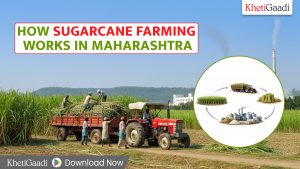Due to increasing awareness about food safety and quality among the rising middle-class population and the quality demands of the export market in the developed countries, the future of contract farming in India is encouraging .
To achieve rapid development in agriculture along with high productivity, the Indian economy invites various multinational companies to intervene in the traditional agricultural system.
Underdeveloped agricultural making, poor agricultural credit facilities and inadequate infrastructure.
Contract farming affects the environment in many ways like over exploitation of groundwater , excess use of fertilizers and pesticides leading to health hazards and mono-cropping leading to decline of soil fertility.
By the government of Japan , firstly the contract farming concept was found in Taiwan in 1895. In India, contract farming has its historical background from the long time when the Europeans first introduced opium and indigo cultivation within the Bengal region, beneath the east India company regulation.
In Andhra pradesh, year 1920s, The ITCs contracted with farmers for growing virginia tobacco. In 1927, pepsico did contract farming for the cultivation of vegetables particularly potatoes and tomatoes in Hoshiarpur taluk in Rajasthan.
What Is Contract Farming?
- The arrangement between farmer, producer and the Agri-business firms to produce at a certain pre-agreed quality and quantity of produce at aparticulat price is known as contract farming or marketing.
- It can only be a pure procurement transaction or can increase the supply of inputs or even more.
- This is an important startup for reducing transaction costs by establishing farmer -processor linkages in addition to the already existing methods of linking the farmers to the consumers.
Models Of Contract Farming:
Centralized Model:
The contracting company supplies necessary support to the farmers, for production of required crops; purchases the crop from the farmers, and then packages and market the product by tightly controlling its quality, this type of farm is famous in developing countries for high value crops such as tobacco, cotton, banana, coffee, tea, cocoa, or rubber etc.
Nucleus Estate Model:
Company owns and manages an estate plantation to ensure the limited guarantee of required output. This model of contract farming is extremely used for tree crops such as palm oil etc, and occasionally used in case of sending abroad fresh vegetables.
Multipartile Model:
It’s a common joint venture approach between statutory bodies or state agencies and private companies; those are jointly participating with farmers.
The multipartite arrangement may include different specialized organizations for the purpose of credit provision, processing, distribution or marketing etc. Example; in West Africa, Mexico, and Kenya.
Informal Model:
It usually involves small start-ups, entrepreneurs or companies who enter into informal contracts with farmers on a seasonal basis which mainly includes crops like fresh vegetables or tropical fruits etc.
Small firms include simple informal seasonal production contracts with smallholders or small land available farmers.
On the availability and quality of external extension services the success is dependent. Embedded services if at all provided, are limited to the delivery of basic inputs, occasionally limited to grading and quality control.
Intermediary Model:
Under this model companies make formal sub-contract with intermediaries (likeagents farmer groups or NGOs) for production of crops. The intermediaries normally enter into informal contracts with farmers to meet the obligations beneath formal contracts with corporations.
The intermediary model provides embedded services and also purchases the crop. This model can work, if well-designed and if incentive-structure is adequate and control mechanisms are in place.
Existing Regulatory Structure:
Now,contract farming needs registration with the agricultural produce marketing committee (APMC) In a few states. Market cost and levies are paid to the APMC to undertake contract farming. Model APMC Act 2003 motivated 14 states to notify rules on contract farming.
Environmental Impact Of Contract Farming:
Contract farming results in monocultures which cause depletion of soil quality of soil and fertilizers and pesticides effect on natural resources, environment, humans and animals. It leads to taking advantage of groundwater is over, soils salination. The decline in soil fertility, and pollution.
The firms do not pay heed as the cost of such effects are externalized so far as the firm is concerned. Contract Farming affects the environment in different ways like overexploitation of groundwater, excess use of fertilizer and pesticides leading to health hazards and mono-cropping leading to decline of soil quality.
To protect cotton crops from insects, the agribusiness firms recommended overuse of pesticides which were not environmentally friendly.
Advantages Of Contract Farming:
Advantages of farmers:
Provision of better inputs and production services. It is also to supply basic inputs such as seeds and fertilizers to get better output.
Sponsors provides facilities such as land preparation, field cultivation and harvesting, theshing as well as free training and extension services to the farmers.
Easy access to credit:
Sometimes Contract farming allows farmers to access some type of credit to finance production inputs.
Arrangements should be made with commercial banks or government agencies through crop loans that are guaranteed by the sponsor, i.e. Where the contract serves as collateral.
Applications of better technology:
Private agri-business will usually offer technology more conscientiously than government agricultural extension services because it has a direct economic interest in improving farmers’ production.
Guaranteed pricing system:
Farmers receive in return an open market depending upon the predominant market prices further as on their ability to discount with consumers for their crops.
Advantaged for sponsor:
Overcoming barriers on land restrictions.
In present days most of the large tracts of suitable land are either traditionally owned, costly to purchase or unavailable for commercial development.
Contract farming, therefore, offers access to crop production farmland they will not well be available to a corporation, with the extra advantages that it does not get to purchase it.
Production consistency and shared risk:
Working with contracted farmers facilitates sponsors to share the risk of production failure because of the poor weather, disease etc.
Both estate and contract farming strategies of getting raw materials are significantly more reliable than making purchases on the open market.
Problems in contract farming:
- Possibility of greater risk
- Sales of crop by farmers beyond contractual agreement
- Social and cultural constraints
- Corruption
- Below quality agro-inputs
- Local unemployment
For more information visit our khetiguru mobile application.
Also visit our website for more information about Tractor, Agricultural implements, Tractor Price, Tractor Videos, and Tractor Games.




